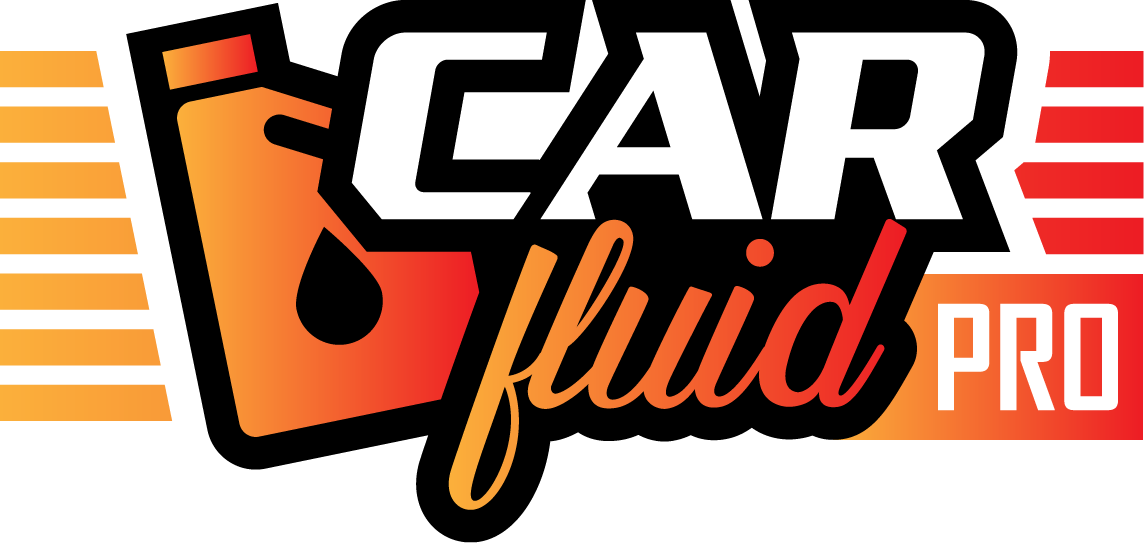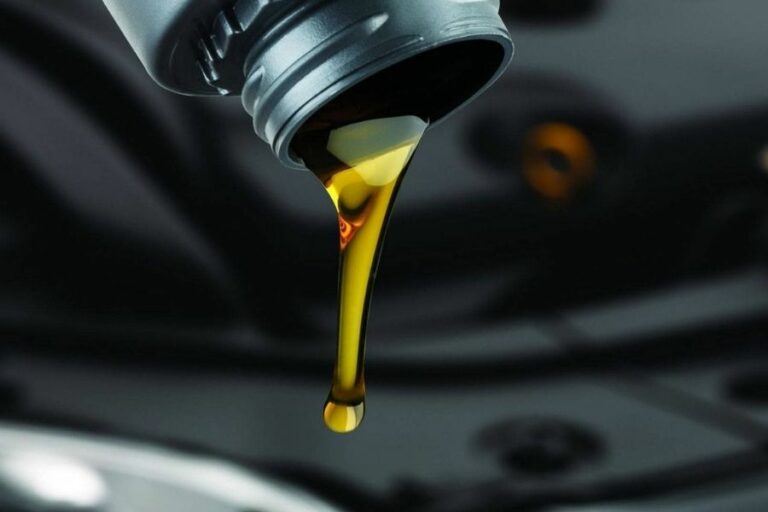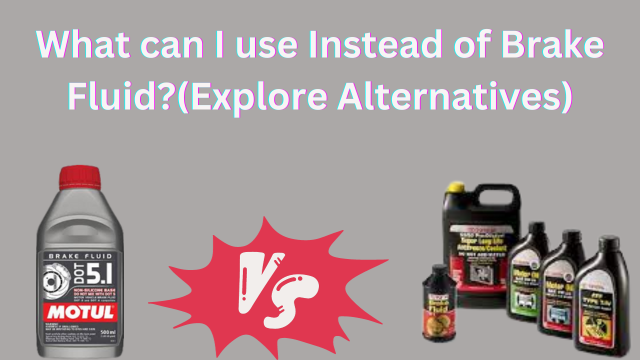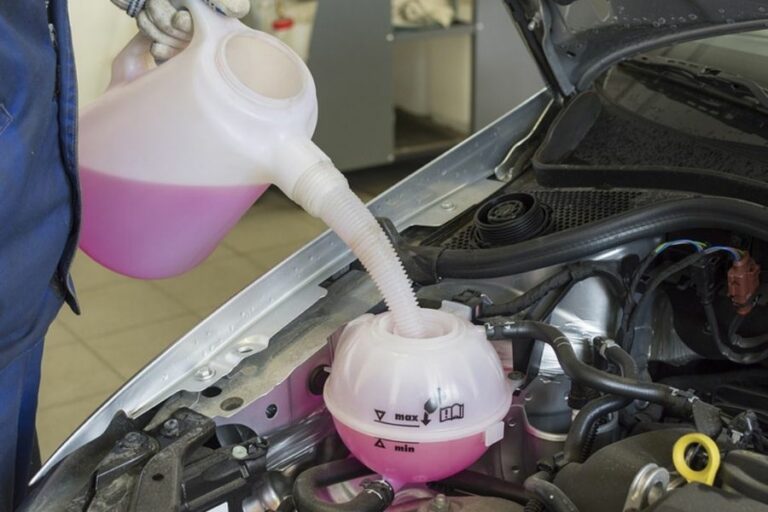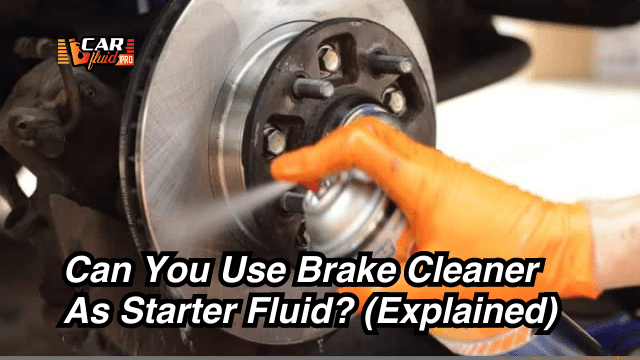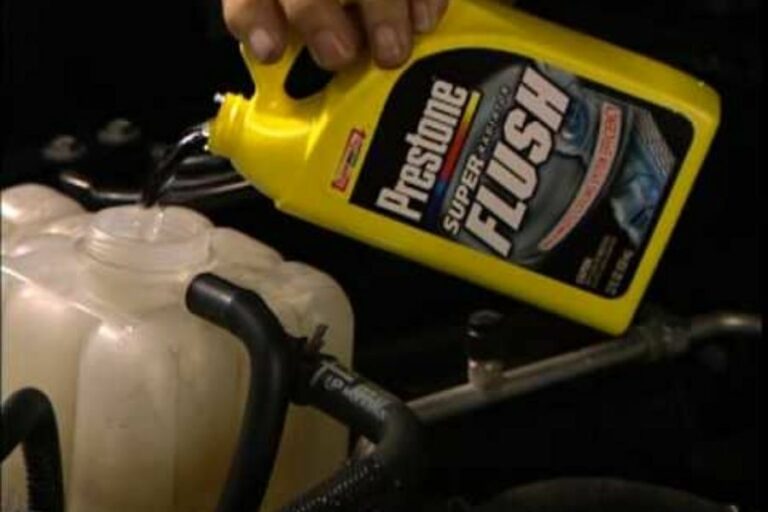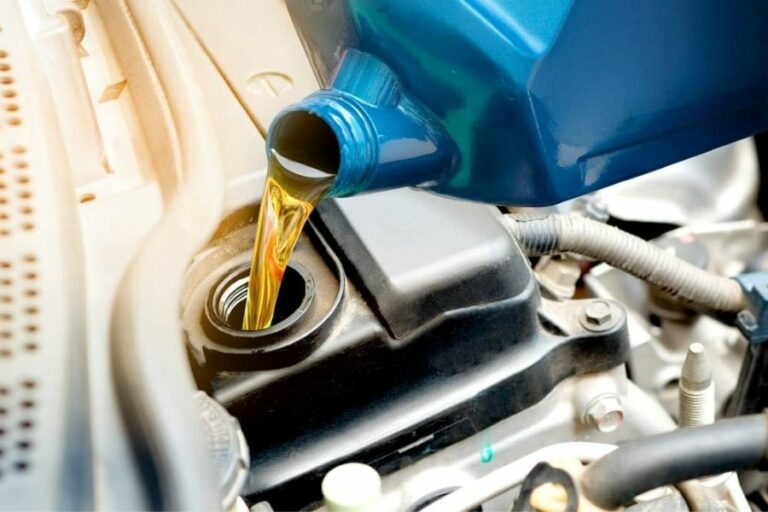6 Reasons Why Clutch Master Cylinder Not Pumping Fluid
Feeling no pressure while pressing the clutch on your vehicle? It could be due to a failing clutch master cylinder that cannot pump fluids. Several reasons can cause a clutch master cylinder not pumping fluid to engage or disengage gears while shifting.
Some issues can be easily fixed at a home garage, whereas other causes might need you to take the car to a mechanic for diagnosis. Let us explore the causes, potential fixes, and common preventive measures to ensure the clutch master cylinder pumps fluid smoothly.
Symptoms of Master Cylinder Not Pumping Fluid
Before looking into possible reasons about no fluid coming out of clutch master cylinder, you must know some symptoms of master cylinder not pumping fluid.
- If the clutch master cylinder is not pumping fluid, you will feel the pedal softly and not resisting enough when pressed.
- You will notice the clutch is not engaging properly; it can be difficult to shift gears.
- The clutch pedal may slip while driving, causing the engine RPM to increase with revving noise without an increase in speed.
- Due to the clutch master cylinder failing to pump fluid, the clutch may not engage at all, making it difficult or impossible to drive the vehicle.
- You will find fluids dripped on the ground if a leak occurs in the clutch master cylinder hydraulic system.
- Some vehicles may have warning lights or messages that will illuminate if there is an issue with the clutch hydraulic system.
So these are some air in clutch master cylinder symptoms.
Read Also: How To Bleed Hydraulic Clutch? (Everything You Need To Know)
6 Causes for a Clutch Master Cylinder Not Pumping Fluid
Once you have been assured that your car clutch master cylinder is not pumping enough fluid, it’s time to look for the causes.
Knowing the reason initially would help you decide wisely about the next step and save a lot of money to be spent on diagnosis.
Insufficient Fluid in the Reservoir
A clutch master cylinder pumps hydraulic fluid to engage and disengage the clutch in a manual transmission vehicle.
If your clutch fluid level is low, the master cylinder may not pump properly and create sufficient pressure for shifting.
Clutch fluids gradually decrease as you drive the vehicle. After running a vehicle for a long time, the insufficient fluid causes no pump when the clutch is pressed. Therefore, not topping off the fluid regularly can worsen the situation.
As the fluid level drops, the pump may draw in air, which can cause a loss of pressure and make it difficult to operate the clutch.
To avoid this problem, it’s important to check the fluid level regularly and address any leaks in the system as soon as possible.
Get access to your clutch master cylinder, located in the engine bay, and inspect fluid leveling. Pour sufficient compatible fluid and bleed out air to reset the master cylinder to avoid such issues in the future.
Read Also: Oil Leak from Distributor Symptom With Guidelines
Leakage in the Hydraulic System
Leaks in the hydraulic system of a clutch master cylinder or slave cylinder can cause the clutch master cylinder not to pump fluid effectively.
A hydraulic clutch system includes two cylinders working side-by-side to engage or disengage the pedal when pressed.
When fluid leaks out of the system, the fluid level in the master cylinder’s reservoir will drop, and air can be drawn in.
This can result in a soft pedal and make it difficult to engage or disengage the clutch.
The air in the system can cause a loss of pressure and reduce the efficiency of the master cylinder pump.
If the leak is severe, the clutch may not work at all. Common causes of leaks in hydraulic clutch systems include worn seals, damaged hoses, or corroded connections.
This fluid is leaked through the pistons and push rods of the hydraulic system when the clutch is pressed. As a result, the fluid level gradually decreases and ultimately fails to pump fluid.
Such an issue can be solved by completely replacing the master cylinder or the slave cylinder. These are cheap and can only cost around $70-$80. Hence, it is better to replace the unit than repair it.
Read Also: Why Is Brake Fluid Removed From The Master Cylinder Prior To Working On Disc Brakes?
Clogged-Up Dirts and Debris
The clutch fluids are used as the main component for pressure transfer. This methodology is known as the hydraulic system. For this, fluids used in the clutch master cylinder must have a definite specific gravity and viscosity.
However, after driving the vehicle for a long time, specks of dirt and debris gets inside the master cylinder reservoir.
All these get concentrated slowly within the fluid. Thus, the fluid gets thickened and muddy. This leads to increasing the viscosity of the fluid.
In such conditions, no pressure builds up when you press the clutch pedal because the fluid has no mobility.
As a result, the clutch master cylinder fails to pump the fluid. Solving this issue is quite simple.
Moreover, you’ll be glad to know that you won’t need to visit the mechanic since you can only solve it at your home garage.
All you would need is to flush out the old fluid from the master cylinder reservoir and pour a fresh amount of new fluid as required.
Read Also: How To Remove Brake Line from Caliper Without Losing Fluid
Trapped Air in the Slave/Master Cylinder
Air can become trapped inside the slave cylinder when the system is opened, leading to the clutch master cylinder failing to pump fluid.
This happens because air bubbles in the fluid can impede the movement of the piston, preventing it from properly transmitting force to the clutch mechanism.
If the clutch master cylinder not pumping fluid, the clutch pedal will feel soft with little or no resistance and may not engage fully.
To resolve this issue, you must bleed the air from the system by opening the bleeder valve on the slave cylinder.
Afterward, pump the clutch pedal until a steady fluid stream is seen. You must repeat this process until all air bubbles are removed from the system.
It’s important to keep the fluid level in the master cylinder topped up during this process.
Internal Physical Damage
Internal damage to the clutch master cylinder can happen due to wear and tear, corrosion, or physical damage over time.
Common causes of internal damage include a worn or damaged piston and push rods, a damaged cylinder wall, or damaged seals or O-rings.
This can lead to slipping or slipping of the clutch, reducing the effectiveness of the transmission.
To diagnose and repair this issue, the clutch master cylinder must be removed and inspected for signs of damage.
If damage is found, you must replace the damaged components. However, the most potential fix is to replace the entire master cylinder, as it costs not more than $100.
Read Also: Why is No Brake Fluid Coming Out When Bleeding? (Explained)
What kills clutch master cylinder?
There are several things that can kill a clutch master cylinder:
- Low clutch fluid : The clutch master cylinder relies on fluid to operate. If the fluid level is low, the cylinder will not be able to properly engage the clutch, and the clutch will eventually slip or fail.
- Fluid leaks: Leaks in the clutch fluid system can also cause the master cylinder to fail. Leaks can occur at the master cylinder itself, at the slave cylinder, or in the lines that connect the two.
- Contamination: If the clutch fluid becomes contaminated with dirt, debris, or water, it can damage the seals in the master cylinder and cause it to fail.
- Wear and tear: Over time, the seals and other components in the master cylinder can wear out and fail. This is especially common in older vehicles or vehicles that are used frequently.
- Corrosion: Corrosion can also damage the master cylinder and cause it to fail. This is especially common in vehicles that are driven in areas with a lot of salt or moisture.
What is the life of a clutch master cylinder?
The life of a clutch master cylinder can vary depending on a number of factors, including the type of vehicle, driving conditions, and maintenance habits. However, a clutch master cylinder can typically last anywhere from 50,000 to 100,000 miles.
FAQs.
If you are new to experiencing the clutch master cylinder not pumping fluid, these FAQs from regular vehicle users could be helpful.
How often can you change the clutch fluid in the master cylinder?
The frequency at which you should change the clutch fluid in a master cylinder varies depending on driving conditions. Generally, it is recommended to replace the clutch fluid every two years or 24,000 miles.
Can a clutch master cylinder fail without leaking?
A clutch master cylinder can fail without leaking. It is possible for the cylinder to fail internally. In such cases, the clutch pedal may feel lighter without any resistance, and not return to its original position.
How can I tell if my clutch line has trapped air?
You can tell if your clutch line has trapped air if you experience a soft clutch pedal feel with no opposite resistance. The clutch pedal may also engage at a higher position or travel longer.
How long does a master cylinder last?
The lifespan of a master cylinder depends on several factors, including the type of vehicle, driving conditions, and maintenance. On average, a master cylinder can last between 20,000 and 50,000 miles.
Final Talk
Now I think you understand that why your clutch master cylinder not pumping fluid because here we give you the complete details about it.
